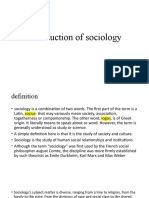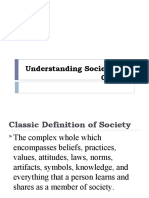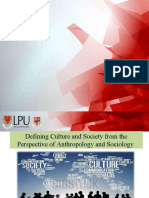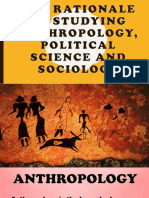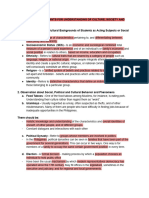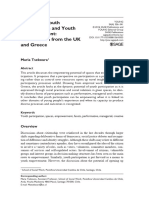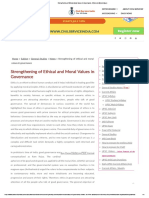0% found this document useful (0 votes)
84 views4 pagesUSCP
The document explores the concepts of identity, culture, and society, defining identity as the distinctive characteristics that shape individuals and groups. It discusses the importance of culture as a societal framework that influences behavior and identity, highlighting material and non-material aspects. Additionally, it examines the roles of anthropology, sociology, and political science in understanding social dynamics and cultural patterns.
Uploaded by
s2025107833Copyright
© © All Rights Reserved
We take content rights seriously. If you suspect this is your content, claim it here.
Available Formats
Download as PDF, TXT or read online on Scribd
0% found this document useful (0 votes)
84 views4 pagesUSCP
The document explores the concepts of identity, culture, and society, defining identity as the distinctive characteristics that shape individuals and groups. It discusses the importance of culture as a societal framework that influences behavior and identity, highlighting material and non-material aspects. Additionally, it examines the roles of anthropology, sociology, and political science in understanding social dynamics and cultural patterns.
Uploaded by
s2025107833Copyright
© © All Rights Reserved
We take content rights seriously. If you suspect this is your content, claim it here.
Available Formats
Download as PDF, TXT or read online on Scribd
/ 4









